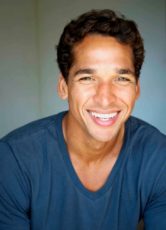
From a director’s point of view, how important is casting to a project percentage-wise? “Les Miserables” director Tom Hooper and “Zero Dark Thirty” director Kathryn Bigelow agree: “One hundred percent.” “That’s number one. And everything else underneath,” says “There Will Be Blood” director Paul Thomas Anderson. That’s a lot of responsibility riding on an actor. So what exactly is it that directors are looking for in an actor?
Preparation is paramount
The importance of preparation cannot be understated. Actors must arrive prepared for the day’s shoot. It shows they are taking the work seriously. Actor preparation minimizes the number of retakes required to capture the scene, thus the crew doesn’t need to continually reset for additional takes. Prepared actors are not only more compelling, but they save precious time and money during the shoot. In post-production, the director is challenged to construct a scene around unprepared talent, cutting away from the performance as needed, and potentially changing the feel of the overall project. However, it should be noted that directors appreciate how difficult it can be for actors to be consistently prepared, especially if the script keeps changing or if there’s a lot to memorize.
“NCIS New Orleans” director Mary Lou Belli says, “I think when an actor has done some homework and put some thought into the scene before they show up, it makes all the difference … They understand how the scene fits into the story.” She likens preparation to packing a suitcase: “You open that suitcase, you put in thousands of things for that character, and you might not wear them—but you might! But they’re packed, and they’re ready. And what it does is it gives the actor the freedom to think in character, knowing that everything in that suitcase is there to be drawn on in that moment, or not to be drawn on in that moment.”
Confidence and acting with grace
Confidence is a quality that directors consistently search for in talent. When individuals know who they are and are comfortable in their own skin, it shows. It elevates the project, as well as the mood of the cast and crew as a whole. But confidence doesn’t mean that everything will go smoothly. With all the pressure on-set, things can get a bit strained.
“Desperate Housewives” director Bethany Rooney describes a quality she looks for as “acting with grace.” She explains, “Acting with grace comes with a basic knowledge that everything is okay—that you just know that. Whatever comes up obstacle-wise, anything that feels like it’s going to be an inhibition of what you want to achieve, you will get through it. You will find a way over it. It will make you be better. Whatever it is, it’s all okay, and it’s all going to be okay. And that is a state of grace that requires that you be confident in your skills, but more than that, that there’s something bigger than you that’s helping you along.” This kind of personal quality also helps actors to fit in with other cast and crew members, whether they’re spending just one day on-set or several years on a series.
Professionalism
Arriving on time, being prepared, exhibiting a positive attitude, treating others with respect, and setting appropriate boundaries demonstrates an actor’s professionalism. Actors must be responsive to a director’s notes, receptive to the cinematographer asking them to hit a certain mark, or the prop master showing them where to put their mug down. They must patiently and appropriately wait hours upon hours until it’s their turn to go before the camera.
Collaboration and flexibility
Directors unify the many unique talents and personalities on-set in a creative mission of cultivating a believable, engaging world and story. Directors are the decision makers when various cast and crew members present options, and the weight of the project falls squarely on their shoulders, for better or worse.
Every director is different, and actors must adjust to the director’s work style. “Mank” director David Fincher is known to be a very painstakingly precise director. This can be hard on an actor who’s asked to do a seemingly endless number of takes to meet his expectations. On the other hand, some performers love his style, feeling assured he’s determined to get exactly what he wants, leaving nothing to chance, and exploring every detail with actors.
Most directors specifically hire actors who readily offer creative ideas about the character and story. The director, after all, wants to make sure the character is doing what he or she wants, which is usually left for the actors to know. During an EPIX directors’ roundtable, Tom Hooper talked about how much some actors bring to the projects: “They bring so much to the storytelling … What I love most is actors who are instinctively good storytellers and … work at how to lift it. Some actors don’t see it as their duty or responsibility, but some want to become a partner in storytelling. And I love that process.”
“Life of Pi” director Ang Lee said, “You really have to pay attention to those good actors when they’re inside of a role. Be very sensitive to that; they teach you a lot. ‘Cause their instinct, where they’re going, whether the scene works or not. They’re very nice, not even telling you there’s something not working, so pay attention. And you really want to turn your movie around if the scene doesn’t work.”
If an actor disagrees with a director’s opinion or vision, they can respectfully explain why they have a different point of view. However, performers must be willing to go with the director’s notes. As an art form, directors may need to see something acted out before realizing if it works or not.
Bring a bit of magic
When actress Elisabeth Moss took on the job of director, she was pleasantly surprised to discover that directing actors became her favorite part of the job. She shared, “When you have this incredible person, this incredible actor to go up to, and you give them an idea or a thought or whatever it is, and you go back to the monitor and just see how it goes into them and comes back out was just the most magical thing I’d ever seen.”
James Gray, who worked with Joaquin Phoenix on the crime thriller “We Own the Night,” explains what makes Phoenix such an asset when you have everything riding on an anticipated film: “He’s an explosive, totally unpredictable presence on-set … in the best sense.”
Engaged listening
In the editing room, directors need all the options they can get while constructing each scene. To tell the story effectively, they may or may not need reaction shots to liven up or help explain a given scene. An actor who “goes flat” while others are saying their lines is not helpful.
Compelling reactions of various intensities that reveal an authentic and engaged actor are essential in the eyes of directors. For this reason, directors closely observe each performer’s active listening skills in the audition room. They know they’ve found what they’re looking for when they’re drawn into the emotional life of the actor, even when no words are being spoken. Many times, performers approach their work as though only their words matter, and yet many directors will assert that it’s the reactions that are the actions of the scene.
Want to get your acting career started? Sign up or login to Casting Frontier and start auditioning today!
Related articles:
Casting Directors on What’s Most Important About Self-Tapes
The Advice Casting Directors Gave Actors Early in Their Careers
Commercial Audition Tips: What Casting Directors Want You To Know




